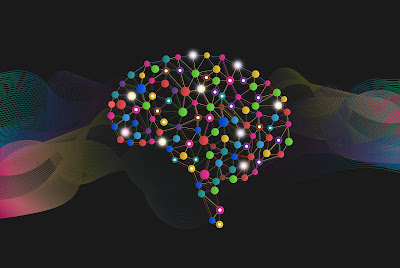How a Neuroscience Degree Can Lead to Career Success
How a Neuroscience Degree Can Lead to Career Success
Are you feeling uncertain about your prospects after
completing your neuroscience degree? In an age of rapid technological
advancement and scientific exploration, a degree in neuroscience has emerged as
a gateway to a multitude of promising career paths. Far from being confined to
research labs and academia, individuals with a background in neuroscience are
now leveraging their knowledge to excel in industries that prioritize
innovative thinking and effective problem-solving. This article delves into the
various ways in which a neuroscience degree can pave the way for career success
across diverse fields.
Medical and Clinical Research
One of the most traditional routes for neuroscience graduates is to embark on a career in medical or clinical research. These roles involve delving into the complexities of the human brain, investigating neurological disorders, and pioneering groundbreaking treatments. By contributing to advancements in the medical field, neuroscience professionals can make a positive impact on society while securing well-paying positions within research institutions, pharmaceutical companies, and government organizations. (University of Toronto Clinical Neurosciences Laboratory, 2022; Fields of Study in Neuroscience, n.d.).
Pharmaceutical and Biotech Industry
Neuroscience degree holders are highly sought-after assets in the pharmaceutical and biotech sectors. Armed with a comprehensive understanding of the brain's functions and intricacies, graduates can contribute significantly to the development and testing of new drugs aimed at addressing neurological disorders. From drug discovery and clinical trials to navigating regulatory affairs, neuroscience professionals play a pivotal role in bringing innovative therapies to market, thereby earning competitive salaries (Ozol, K, 2018; Shah-Neville, 2023).
Neuromarketing and Consumer Behavior
The convergence of neuroscience and marketing has given rise
to the field of neuromarketing. Companies now recognize the value of
comprehending consumer behavior at a neural level. A neuroscience degree equips
graduates with the skills to analyze consumer responses to various stimuli,
enabling businesses to tailor their marketing strategies for maximum impact.
Professionals in this field collaborate closely with advertising agencies,
market research firms, and corporations, commanding substantial compensation
for their expertise (Careers in Neuromarketing, n.d.; Dooley, 2015).
Data Science and Analytics
In the era of big data, neuroscience graduates possess the
analytical prowess to excel in data-driven industries. By harnessing their
expertise in data interpretation, statistical analysis, and predictive
modeling, these individuals find themselves in high demand in sectors such as
finance, technology, and healthcare. The ability to uncover hidden patterns in
complex datasets can lead to rewarding careers in roles such as data scientist,
business analyst, or artificial intelligence specialist (William, 2022).
Healthcare and Neurology
The application of neuroscience knowledge extends directly
to the field of healthcare and neurology. With a neuroscience degree, graduates
can pursue medical school, complete residency programs, pass certification
examinations, obtain provincial licenses, and specialize in specific
subspecialties to enhance their capabilities and expertise in neurology (Indeed
Editorial Team, 2022). Neuroscientists who become neurologists diagnose and
treat disorders of the nervous system. As the demand for specialized medical
care continues to grow, neurologists command substantial compensation due to
the complexity of their work and the expertise required.
Entrepreneurship and Startups
In light of innovative technologies and research breakthroughs, neuroscience graduates are also making strides in entrepreneurship. Many are establishing startups focused on exploring novel therapies, developing wearable devices for brain monitoring, or creating software applications to enhance mental health. By leveraging their scientific knowledge and business acumen, these individuals have the potential to reap significant rewards from their investments (Top Neuroscience Companies and Startups in Canada, n.d.).
Consulting and Advisory Services
Neuroscience experts are increasingly in demand as
consultants and advisors. Companies across various industries value their
insights into human behavior, cognitive processes, and decision-making
mechanisms. By offering guidance on employee engagement, product development,
and customer experience, these professionals can earn substantial fees for
their strategic advice.
Embracing a Bright Future with a Neuroscience, Consulting, Advisory Degree
A neuroscience degree reflects a profound understanding of the human brain and its intricacies. Beyond the realms of research and academia, this expertise finds application in numerous industries that prize critical thinking, data interpretation, and innovative problem-solving. From healthcare and research to technology, entrepreneurship, and marketing, the avenues for career success with a neuroscience degree are diverse and promising. As scientific advancements continue, the opportunities for these skilled professionals to forge meaningful and financially rewarding careers persist.
References
Careers in Neuromarketing (n.d.). NMSBA. https://nmsba.com/neuromarketing/careers-in-neuromarketing
Dooley, R. (2015). Neuromarketing Careers. Neuromarketing. https://www.neurosciencemarketing.com/blog/articles/neuromarketing-careers.htm
Fields of Study in Neuroscience. (n.d.). | Psychology Today. https://www.psychologytoday.com/intl/basics/neuroscience/fields-study-in-neuroscience
Indeed Editorial Team (2022). How to Become a Neurologist | Indeed.com Canada. https://ca.indeed.com/career-advice/finding-a-job/how-to-become-neurologist
Ozol, K (2018). What You Should Know About Pharma and
Biotech Jobs. Neuroline. https://neuronline.sfn.org/career-paths/what-you-should-know-about-pharma-and-biotech-jobs
Shah-Neville, W. (2023). 9 neuroscience biotech companies you should know about. Labiotech. https://www.labiotech.eu/best-biotech/neuroscience-biotech-companies
Top Neuroscience companies and startups in Canada (n.d.). F6S. https://www.f6s.com/companies/neuroscience/canada/co
University of Toronto Clinical Neurosciences Laboratory (2022). Cognition, The Brain, and Psychopathology. University of Toronto Clinical Neurosciences Laboratory. https://clinicalneurosciences.ca/research
William, T (2022). Advice for becoming a data scientist as a psychology/neuroscience PhD student. https://williamthyer.github.io/posts/2022/1/phd_to_data_science













Comments
Post a Comment